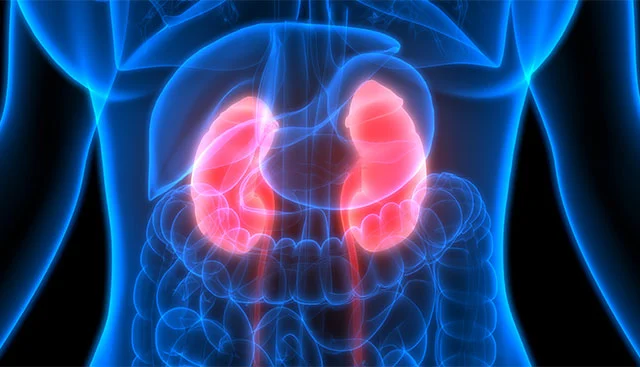Kidney Cancer Awareness: What You Need to Know
The month of march marks an important time for raising awareness about kidney cancer, a disease that often goes unnoticed despite affecting a wide number of people each year. It occurs in one or both kidneys, usually doesn’t have symptoms in its early stages, making early detection more challenging. This month, we shine a light on kidney cancer to help spread knowledge, improve early detection, and provide support to those battling the disease.
What is Kidney
Cancer.
Kidney cancer
affects the kidneys, which resemble the shape of a kidney bean and are about
the size of a fist. They are located above your waist—one is on the right side
of your spine and the other is on the left. The most common type of kidney
cancer is renal cell carcinoma (RCC), which is seen in 9 out of 10 people
according to Cancer Support Group.

Signs & Symptoms
In the early stages, most people don’t have signs or symptoms. Kidney cancer is usually found by chance during an abdominal (belly) imaging test for other complaints. As the tumor grows, you may have:
- Blood in the urine
- Pain in the lower back
- A lump in the lower back or side of the waist
- Unexplained weight loss, night sweats, fever, or fatigue.
Risk factors
A risk factor is anything that increases your chance of getting a disease. Some risk factors can be changed (smoking, as an example); but others cannot be changed (your gender or family history). Having a risk factor, or even several risk factors, does not mean you will get kidney cancer, but it may increase your risk.
- Risk factors for kidney cancer include:
- Smoking
- Being overweight (obese)
- High blood pressure
- Gender - about twice as many men as compared to women develop kidney cancer
- Being on dialysis treatment for advanced chronic kidney disease
- Family members with kidney cancer
- Long-term use of a pain-relieving drug called phenacetin
- Certain rare genetic diseases, such as von Hippel-Lindau disease, Birt Hogge Dube syndrome, and others
- History of long-term exposure to asbestos or cadmium
Early Detection: Why It’s Critical
One of the challenges with kidney cancer is that it often doesn’t present symptoms until the disease has advanced. This is why early detection is key to improving outcomes. Kidney cancer is typically diagnosed through imaging tests, such as:
- CT scans
- MRI scans
- Ultrasounds & Biopsy (in some cases)
Regular health checkups and screenings can help detect potential kidney issues early. If you have risk factors for kidney cancer, discuss with your doctor about what screenings or preventive measures might be appropriate for you.
Treatment options.
Treatment option for kidney cancer depends on stage, type & location. Most common treatment options include;
1. Surgery (Nephrectomy):
Radical Nephrectomy: Removal of the entire kidney and surrounding tissue.
Partial Nephrectomy (Kidney-Sparing Surgery): Removal of only the cancerous portion of the kidney, along with a small margin of healthy tissue. Primarily used for localized kidney cancer that hasn't spread.
2. Targeted Therapies:
These drugs target specific proteins or pathways that help cancer cells grow and spread. Often as first-line treatment for advanced kidney cancer.
3. Immunotherapy:
Boosts the body's immune system to recognize and attack cancer cells. Often used in combination with targeted therapies, or as a second-line treatment.
4. Radiation Therapy: It Uses high-energy rays to kill cancer cell primarily for pain relief or to treat cancer that has spread to other parts of the body.
5. Cryotherapy and Radiofrequency Ablation:
These procedures use freezing (cryotherapy) or heat (radiofrequency ablation) to destroy cancer cells. It is commonly used for small, early-stage kidney cancers or when surgery is not an option. Advances in cancer treatments, including immunotherapy and targeted therapy, have improved the outlook for many patients with kidney cancer, especially those with advanced stages of the disease.
Supporting Kidney Awareness
Raising awareness about kidney cancer is not only important for early detection but also for supporting those who are living with this disease in the following ways.
Educate Yourself and Others: Understanding the symptoms, risk factors, and treatments of kidney cancer can help you identify the disease early in yourself or others.
Support Kidney Cancer Organizations: Donating to and volunteering with organizations that fund research, provide patient support, and raise awareness can make a big impact. Some reputable organizations include the Kidney Cancer Association and the American Cancer Society.
Participating in Awareness Campaigns: Share social media posts, wear green (the color for kidney cancer awareness), and talk to your community about the importance of kidney cancer awareness.
Support Patients and Families: If you know anyone who has been diagnosed with this disease, offer emotional support, accompany them to appointments, and helping them navigate treatment options can make a significant difference.
Conclusion.
Kidney Cancer Awareness Month serves as a vital reminder of the importance of early detection, prevention, and supporting those affected by this often-overlooked disease. By educating ourselves, raising awareness, and supporting research, we can make a significant impact in the fight against kidney cancer. If you or someone you know is experiencing symptoms, seek medical advice as early detection plays a key role in improving outcomes. Together, we can work toward a future where kidney cancer is no longer a silent threat.
References.
https://www.kidney.org/kidney-topics/kidney-cancer
Kidney Cancer Awareness